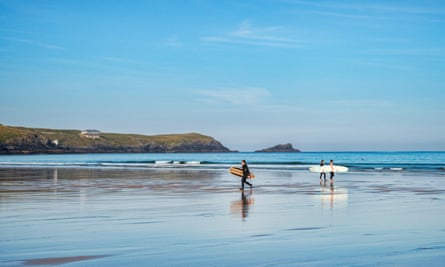So, you’re thinking of coming to Cornwall. Perhaps you’re here for a half-term break or planning your annual summer pilgrimage. But what do you really know about this seemingly perfect, picture-postcard holiday destination?
For example, have you ever wondered where the local people live? Or have you noticed that many of your holiday neighbours are recognisable in the narrow lanes of the pretty fishing villages because they are the same people you live near in London? If you talk to the local people – the ones who serve you in the fancy fish restaurants or who clean your bed linen and come out to your rental on a Sunday night to help with the sticky front door – they will tell you that they have been priced out of their own towns.
No longer can they afford to live in the shoreside fishing cottages (they might also tell you that their grandfather lived there as a boy), and anyway the village doesn’t have a bus service in the winter months, so they’ve had to move to one of the less beautiful inland towns for out-of-season work.
Many tourists visiting Cornwall in the holiday season do not realise the huge part played by water, and the lack of it, here in my home county. In summer 2022, we locals were asked by South West Water to ration our usage in the run-up to the holidays so that tourists had enough when they visited. In next-door Devon, restrictions have just been extended to a further 390,000 local people to conserve water for the coming holiday season. This summer we will probably face more water rationing, as suppliers have admitted that new treatment plants will not be ready in time for the annual doubling of our population.
The tourism industry, particularly in rural and coastal areas, is heavily reliant on healthy ecosystems. They bring a range of benefits, not least food, water and natural beauty for visitors and local people alike. However, tourists can threaten the quality of the local environment, and overtourism is a growing concern, bringing traffic, parking issues, pollution and litter. Cornwall is one of the UK’s top holiday destinations and receives an estimated 5 million visitors every year. The recent sharp growth in the sector has led to strain on infrastructure – including hospitals, the RNLI and other local services – while unregulated rentals have meant unaffordable housing for residents.
So what can those visiting Cornwall do to counteract this? You could start by visiting beaches that don’t feature in the usual guidebooks. Get exploring and discover your own private paradise; there are many coves that remain quiet throughout the year. Visitors can also protect the nature around them and contribute to its restoration by getting involved in nature-based activities and conservation: join a Surfers Against Sewage beach clean; discover Cornish Wildlife Trust events like woodland and cliff path conservation; visit RSPB reserves; rent beach equipment; leave the car behind to enjoy top cycle routes.

Despite what you may have read, we Cornish do welcome visitors and are happy to share our love of our land with you. But it might help if you do a bit of research – Cornwall is fiercely independent and has a proud and unique history and heritage. It’s worth finding out a bit more about our Celtic nation and the Cornish language. (Try our national motto, “onen hag oll”, literally translated as “one and all”.) And try not to be rude to local people. If you’ve been asked to not drink from a glass bottle on the beach, there is a reason for that. Don’t forget to tip waiting staff. They are probably on minimum wage, and tipping is an easy way to support the local economy.
Cornwall is best enjoyed at a slow pace, our roads are notoriously narrow and winding, so the art of reversing is essential. And don’t park wherever you like, especially on the beach! When taking to the coastal path, please don’t run or cycle; it speeds up erosion and is also incredibly dangerous. Don’t forget to take your rubbish away with you: many beaches, especially secluded ones, don’t have bins, so that bag full of waste and those disposable barbecues that you stack neatly against the cliff will end up in the sea, harming wildlife.
Please don’t buy a second home! If you do, and leave it empty for most of the year, you’re likely to get angry local people making their feelings known. And don’t do a mass Airbnb booking: there’s a housing crisis in Cornwall, and the unregulated accommodation option is putting pressure on housing and pricing local people out of the market. You could always book caravans in holiday parks or rooms in hotels. Many of them are five-star rated – not what you remember from your childhood.
Tourism is the second biggest sector in Cornwall after agriculture, supporting one in five jobs, and that’s projected to grow at 3.8% a year until 2025. But it’s ridiculous and unhelpful that tourism only happens in the spring, on May bank holiday weekends and in the summer months.
Cornwall doesn’t stop being beautiful on the last day of August; it is incredibly beautiful all year round. Our winters are milder than the rest of the country and fewer people visit then, so holidaying then would definitely be less manic, and nothing beats a walk on a wet and windy beach. Everyone in Cornwall knows that the real summer starts in September – perfect for those who are not tied to school holidays. We locals know best, join us!
-
Natasha Carthew is the author of Undercurrent: A Cornish Memoir of Poverty, Nature and Resilience (Coronet), and the founder and artistic director of the Working Class Writers’ festival
Welcome to Cornwall! Please don’t ruin it for us local people - The Guardian
Read More
No comments:
Post a Comment